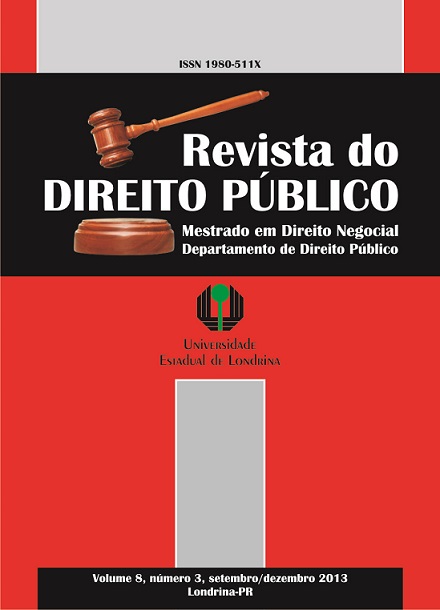Contemporary urban slave labor: the Bolivians working at sewing shops in São Paulo
DOI:
https://doi.org/10.5433/1980-511X.2013v8n3p77Keywords:
Escravidão, bolivianos. trabalho escravo urbano, trabalho decenteAbstract
The Brazilian Federal Constitution of 1988 provides in its Article 1., III, from its foundations to human dignity. But unfortunately, today in Brazil there are numerous cases of Bolivian citizens reduced to a condition analogous to slave also in the field of sewing workshops in greater São Paulo. The supervision of the Ministry of Labour and ILO reports charge that many workers are subjected to very low wages, unhealthy workplaces, poor hygienic conditions and housing. These conditions are an affront to the concept of decent work provided as a right by Brazilian labor laws, ILO Convention 29, in Art. 2 (1930), social function of business property (Art. 170, III CF / 88) and the definition of crime (Article 149 CPP). The slave is one who not only steals the freedom but also the human dignity and must not go unpunished. In the face of this reality and to confront it is pending the Proposed Constitutional Amendment No. 438/01 (which returns to be processed as PEC 57A / 1999), which proposes to amend Article 243 of CF / 88 and provides as a sanction to expropriation rural and urban real estate. Brazil sees up at the prospect of the abolition of new forms of slavery and the ability to ensure these citizens workers' rights due to them.Downloads
Downloads
Published
How to Cite
Issue
Section
License

This work is licensed under a Creative Commons Attribution-NonCommercial-NoDerivatives 4.0 International License.
Os autores cedem à Revista do Direito Público, direitos exclusivos de primeira publicação, com o trabalho simultaneamente licenciado sob a Licença Atribuição-NãoComercial-CompartilhaIgual 4.0 Internacional. Esta licença permite que terceiros façam download e compartilhem os trabalhos em qualquer meio ou formato, desde que atribuam o devido crédito de autoria, mas sem que possam alterá-los de nenhuma forma ou utilizá-los para fins comerciais. Se você remixar, transformar ou desenvolver o material, não poderá distribuir o material modificado.












